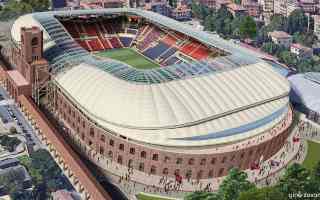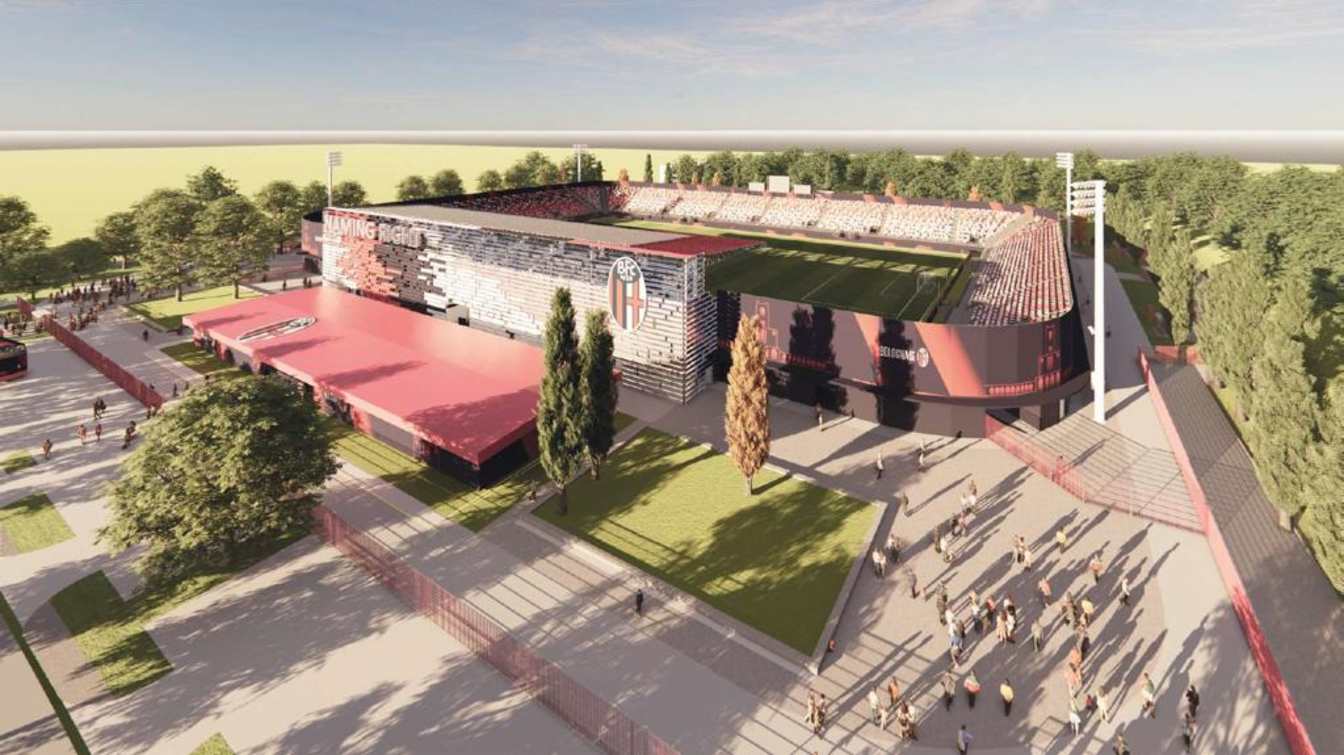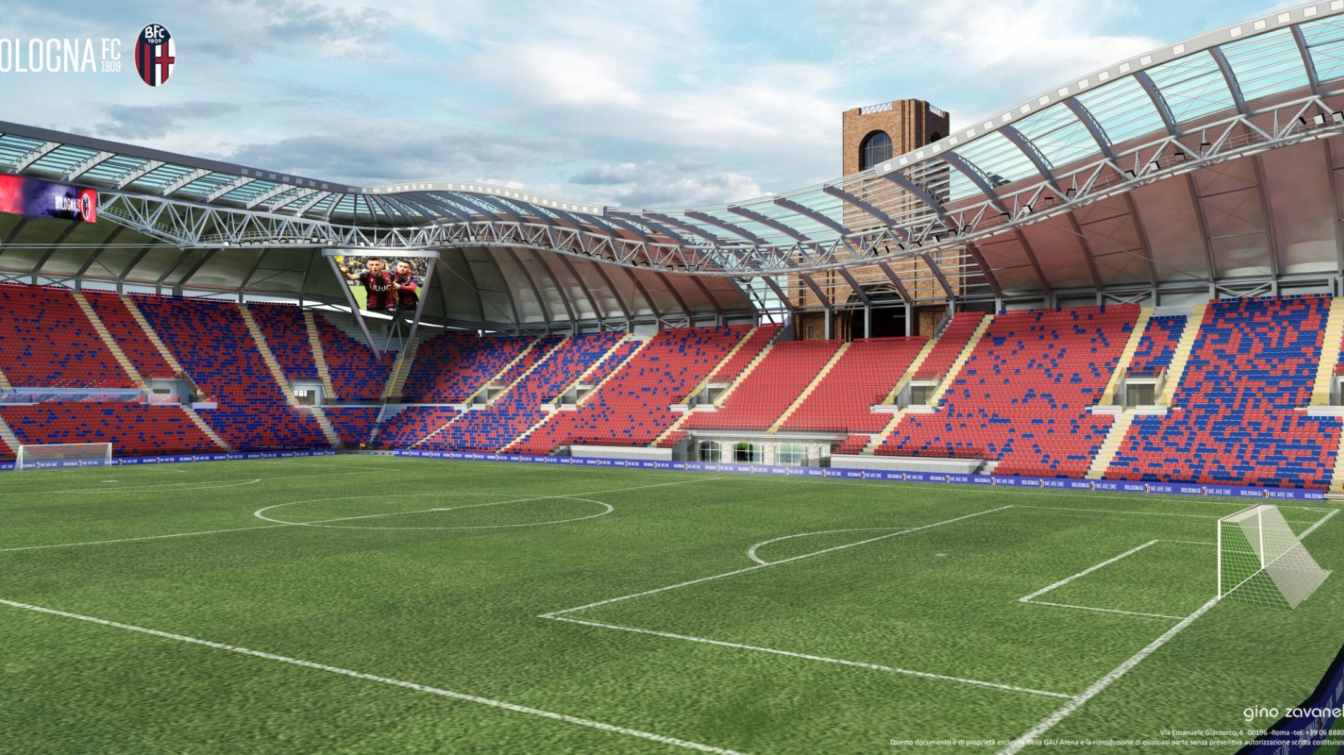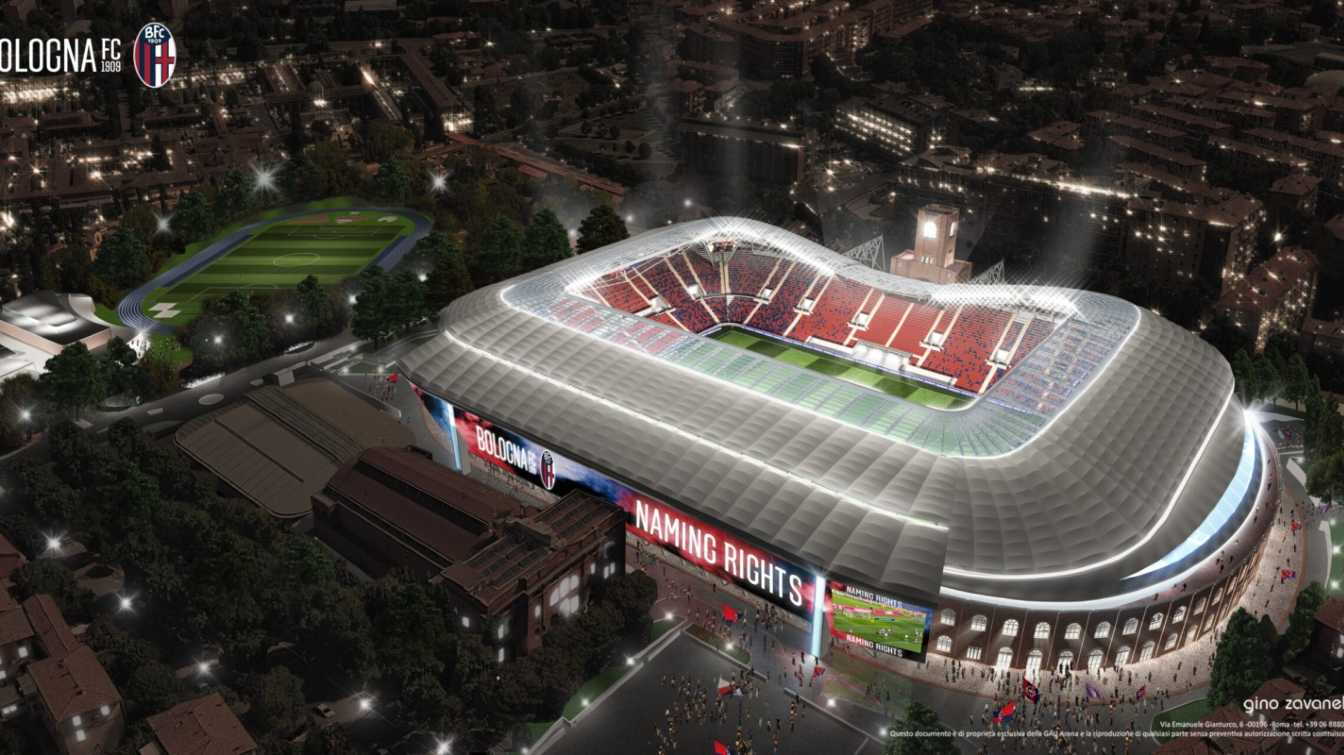Italy: Bologna dreams of Euro 2032 and a new stadium
source: StadiumDB.com; author: Jakub Ducki
 Bologna dreams of hosting a major tournament and having a modern stadium that meets European standards. Joey Saputo’s club is accelerating its plans to redevelop the Dall’Ara stadium, but progress hinges on guarantees from the Italian government.
Bologna dreams of hosting a major tournament and having a modern stadium that meets European standards. Joey Saputo’s club is accelerating its plans to redevelop the Dall’Ara stadium, but progress hinges on guarantees from the Italian government.
Advertisement
Racing against Fiorentina and pressure after Ceferin’s remarks
The race for European competition isn’t the only one Bologna is involved in. The club is also challenging Fiorentina in the bid to host Euro 2032. Stadio Renato Dall’Ara redevelopment project is gaining momentum, though the club emphasizes it needs clear commitments from the state. According to Il Resto del Carlino, CEO Claudio Fenucci met with Sports Minister Andrea Abodi during Bologna’s match against Milan in mid-May to discuss the future of the stadium.
The issue gained urgency after outspoken comments from UEFA president Aleksander Ceferin, who called Italy’s sports infrastructure a real disgrace,
adding pressure in Bologna. The city wants to be among the Euro 2032 host venues, but without additional government support, the investment cannot begin.
As with Stadio Artemio Franchi in Florence, a significant funding gap remains—about €50 million is still needed to start construction. Fenucci and the club’s leadership are seeking clarity on what public and private funds could be used to finance the redevelopment.
New stadium, old problems
Although an agreement with the city council is already in place, there’s still no clarity on who will cover a major portion of the costs. Meanwhile, Bologna is enjoying a stellar season, securing a Europa League spot by winning the Coppa Italia and drawing increasingly larger crowds. Italian football is re-emerging on the European stage, though the progress is driven by individual clubs rather than a systemic overhaul.
Plans to renovate Stadio Renato Dall’Ara predate this season, but now face serious obstacles. A temporary relocation to a stadium in the Caab district was initially planned. However, with the club’s current popularity, this now seems unfeasible. The temporary venue would offer just 16,000 seats—far short of the 28,000 average attendance and 20,000 season tickets sold. Moving to another city is also ruled out. A more likely scenario now sees the new stadium built at the Caab site, while the historic but outdated Dall’Ara would be used as a temporary home.
 © Bologna FC
© Bologna FC
Finances and political risk
The modernization won’t come cheap. Current estimates place the total cost at €220–230 million. The club hopes to increase its contribution from the original €40 million to €50 million, while the Meloni government is being asked for an additional €60 million. If plans proceed smoothly, Saputo will cover between €110 and €120 million. In return, the state would not provide grants but instead take equity—potentially a majority stake—in a special purpose company, Bologna Stadio, tasked with delivering the project. This model would allow the state to recoup its investment after the stadium is completed.
Sports Minister Andrea Abodi supports the investment, but Finance Minister Giancarlo Giorgetti has serious reservations. The state may only commit €25 million, which could jeopardize the entire project. The risk of missing out on Euro 2032 is growing more real—especially since the final list of host cities has yet to be confirmed.
Post-renovation Dall’Ara – what will it look like?
In December 2023, Bologna signed a deal with Webuild, granting the firm exclusive rights to design and execute the works until the end of 2027. The design envisions a stadium open seven days a week, offering modern services beyond matchdays.
The stands will be just seven meters from the pitch, and the structure will feature a lightweight, shell-like cover that allows light and air to pass through. The metallic structures added for Italia ’90 will be removed, while the iconic 1927 façade will be preserved.
The renovated venue will meet UEFA Category 4 standards and accommodate over 30,000 spectators. The plans also include upgrades to the Antistadio training ground on Via Andrea Costa. The initially proposed temporary stadium in the city’s eastern district remains uncertain.
Advertisement
 StadiumDB
StadiumDB
